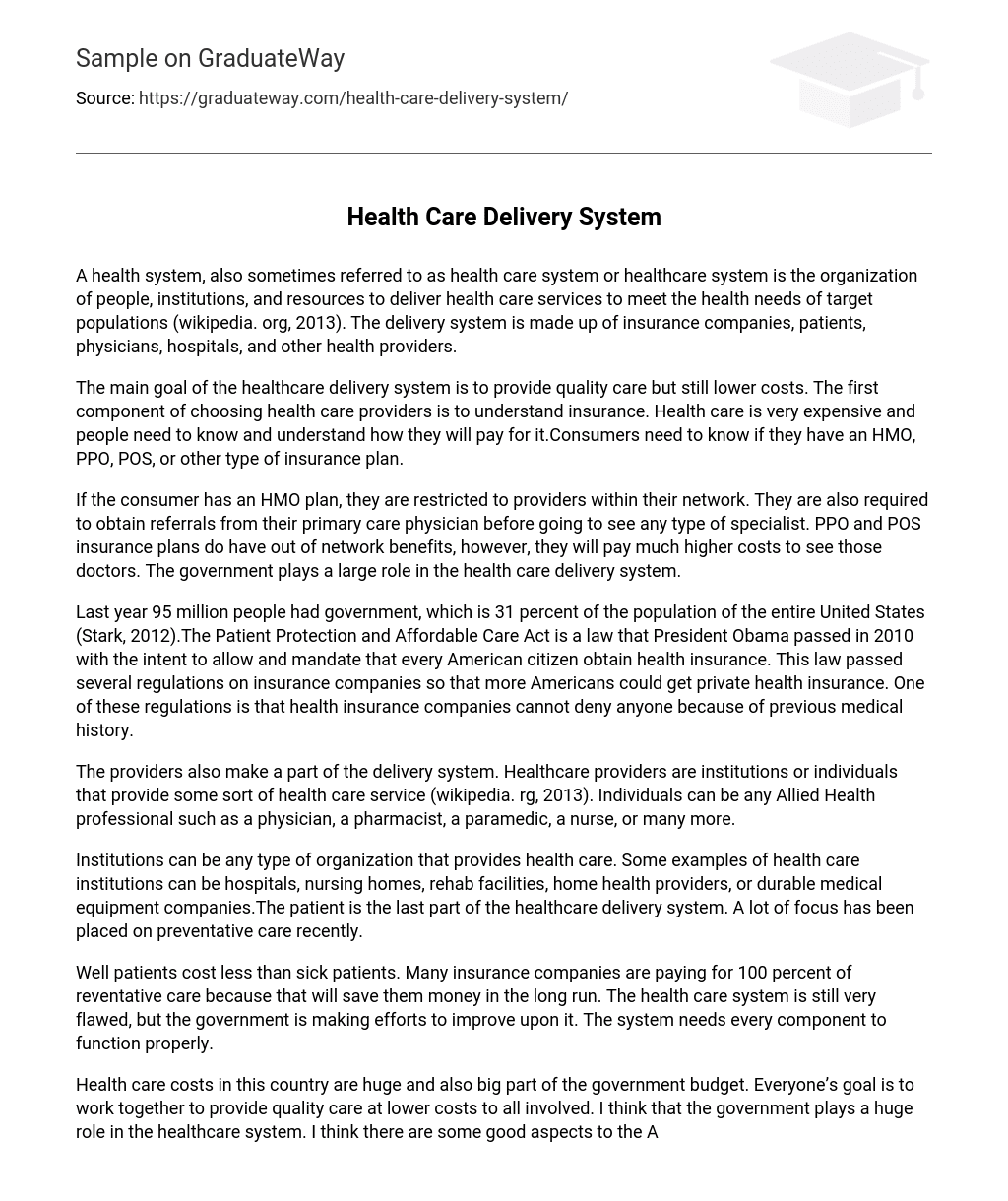A health system, which can also be referred to as a health care system or healthcare system, is the organization of individuals, organizations, and resources that are responsible for providing healthcare services to particular populations (wikipedia.org, 2013). This delivery system comprises insurance companies, patients, physicians, hospitals, and other healthcare providers.
The main goal of the healthcare delivery system is to provide high-quality care at a lower cost. An important factor in choosing healthcare providers is understanding insurance concepts. Given the expensive nature of healthcare, it is crucial for individuals to have knowledge and understanding of their payment options. Consumers need to determine if they have an HMO, PPO, POS, or any other type of insurance plan.
When enrolled in an HMO plan, individuals are required to use network providers and must obtain specialist referrals from their primary care physician. On the other hand, PPO and POS insurance plans provide out-of-network benefits at a higher expense. The government has a major role in the healthcare delivery system.
Stark’s 2012 report revealed that around 95 million individuals, approximately 31% of the total US population, received government assistance. To guarantee healthcare coverage for all American citizens, President Obama implemented the Patient Protection and Affordable Care Act in 2010. This legislation not only focused on offering health insurance but also included measures to prevent insurance companies from refusing coverage due to past medical records.
According to wikipedia.org (2013), healthcare providers, whether they are institutions or individuals, have a vital role in the delivery system as they offer various healthcare services. These providers can encompass Allied Health professionals like physicians, pharmacists, paramedics, nurses, and more.
Within the healthcare industry, there are different types of organizations such as hospitals, nursing homes, rehab facilities, home health providers, and durable medical equipment companies. The patient is an essential part of the overall healthcare delivery system. Recently, there has been increasing focus on preventive care.
Insurance companies now frequently cover the full expense of preventive care, as it has been demonstrated to be a cost-effective long-term approach. Healthy individuals are less costly in terms of healthcare expenses compared to those who are sick. Despite its notable deficiencies, the government is actively striving to enhance the healthcare system, recognizing that every component is essential for efficient functioning.
Reducing expenses and ensuring quality care are the main goals for the United States government in dealing with healthcare costs. The government plays a major role in the healthcare system, but while there are positive aspects to the Affordable Care Act, it is expected that it will ultimately place a significant financial burden on American citizens.





